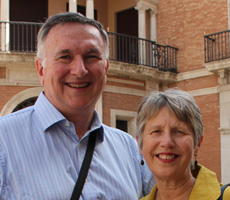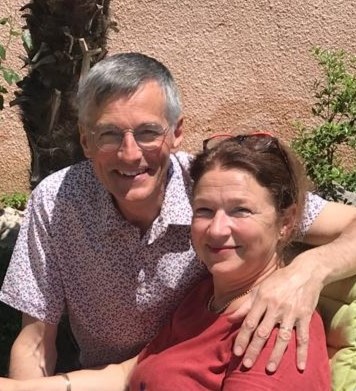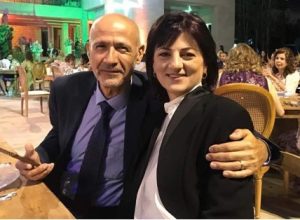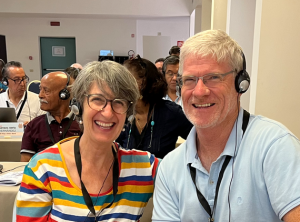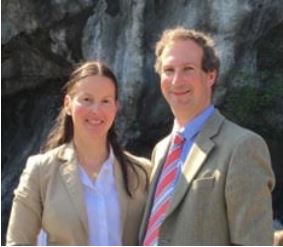
Asceticism, the path to holiness
“Every choice involves giving up something”. This is a common expression that some of us would have used many times. When we choose to follow Jesus and live according to his plan, there are a series of renunciations that we freely take on so we can live as faithful Christians. If we are to speak about asceticism or about what asceticism is, we need to discuss all the voluntary renunciations that contribute to our spiritual development, in our search for holiness. It is a holiness to which we are called.
Here are some definitions of asceticism:
- The exercise and practice of an austere lifestyle, and the renunciation of material pleasures, in order to acquire habits that lead to moral and spiritual perfection.
- Doctrine that aims to attain moral and spiritual perfection by means of this lifestyle.
- Likewise, it is a term, derived from the Greek, commonly understood as the set of efforts by which one wishes to progress in the moral and religious life. (In its original sense the word indicated any exercise – physical, intellectual and moral – carried out through a certain method in order to progress.)
Hence, when we speak of asceticism in a Christian life, we are looking at a gradual path of continuous efforts that leads us to holiness. Little is said about it today despite its constant presence in the invitations of Jesus in the texts of the New Testament. There seems to be a certain amount of fear about thinking of a Christian life as a series of penances and privations, leaving aside the commandment of love.
Perhaps looking back, there are moments in the history of the Church when this view took precedence. In reflections inspired by Greek philosophy, the body was distrusted, and was seen as an obstacle to sanctification. However, if we are to look at the concept of a human being living an authentic and coherent Christian spiritual life, we need to take account of all aspects of our existence: bodily, psychological, moral and spiritual. This is how we establish a path of perfection that can lead us to the holiness we long for.
Today, we have once again begun the journey of Lent. The Church invites us, as her children, to take part in the Lenten practices, through the practice of charity, the strengthening of our prayer, and through fasting. It is not only a question of not eating certain foods, but it also expresses the practice of all those exercises which refer to asceticism. In a presentation for Sector Couples in March 1972, Father Caffarel dedicated some time to answering questions concerning asceticism. Let us recall his words:
Question: Asceticism would be a set of rules of life?
Reply: “Asceticism consists in part in eliminating from one’s life everything that holds us back and prevents us from responding to the Lord’s calls. We all know about these things: one is gluttony, another is sensuality, another is ambition, another is the desire to be seen, etc. … We all have many tendencies that weigh us down in our walk towards God. Or, if you want to put it in terms of love, our love for God is terribly hindered by attachment to ourselves, and this attachment to ourselves is composed of many things. It is all the lusts that I have just named: I like money, I like to take it easy, I like to be alone, etc. … So, it takes a thousand and one efforts to finally make my life a life of love.
This implies all the conquests of myself. I will not achieve this conquest of myself overnight. So, I am going to undertake the conquest of myself step by step, telling myself that I have 10 years, 20 years, 50 years to go…
…I will say one more word in closing. In Rome I suggested an orientation of asceticism. It is because, in line with what I was saying earlier, when one loves another, one must try to free oneself from everything that hinders love for the other.
In Rome I said that the Movement was a bit heavy of heart. I wondered why there was this heaviness. Why were there so many homes that gave the impression of insufficient spiritual fulfilment, of a lack of spiritual joy? On reflection, it seemed to me – and this is why I spoke of asceticism – that many Christians are concerned about loving God, but not about paying the price. To love requires that we pay a price, and in particular, that price consists of restraining everything that slows us down and slows down our momentum. Because we neglect too much this negative aspect of this other face of love (renunciation), love cannot unfold. Love is not joyful enough. There is a morality that drags itself along without the wings of love. And if it does not have the wings of love, even though it wants to have them, it is because it does not have the concern to restrain in me this love of myself which constantly competes with the love of God.
Ricardo Londoño Domínguez
Spiritual Counsellor
→ Read ERI Letter March 2023
|
Faye & Kevin Noonan Australie |
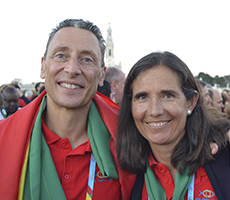
Mercedes & Alberto PÉREZ GÓMEZ-FERRER Espagne |


